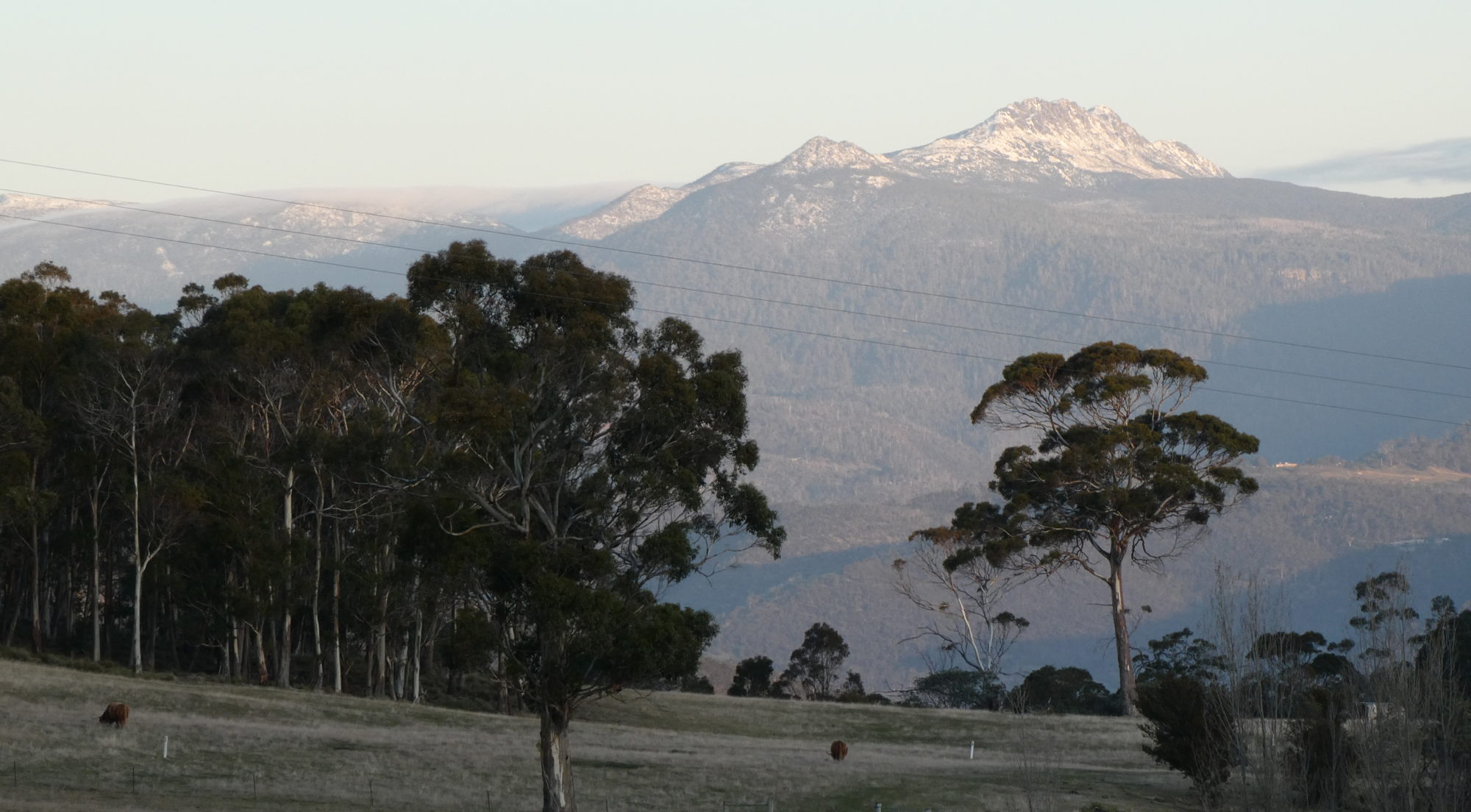I have no personal social media. I insist on it for sales and marketing teams in companies, but for me as an individual it holds zero interest or value. I have no Facebook, never used Twitter, and despite being a corporate executive, am not on LinkedIn. I do not even understand what TikTok is.
Social media in general perplexes me. Everywhere I go, I see people with their faces in their iPhones or iPads. I used to wonder what I am missing, Is some earthshattering event happening that I am the only person missing out on? It was impossible for me to understand what everyone is glued to. Nothing in my life seemed empty or vacuous, everything seemed to be running along as normal and okay. So whatever I was missing out on escaped me. And no one I observed appeared to be racing ahead in their lives or careers, so it was an enigma. Is still an enigma.
It troubled me to see someone walking across the street with a mini screen blocking their view, or a couple at a dinner table engrossed in something on their screens ignoring each other. I laughed at a scene in a movie where a pair of friends had a conversation with each other by phone, while sitting at the same restaurant table.
It is worse. I do not have a cell phone. That is impossible for most people to believe. I love a landline, cheap, effective, instant, secure, and capable of two functions, making and receiving calls. There is the recent disconnect movement. When a person has a cell phone that effectively lives on their body, they are always available. And companies leverage off that. Such a problem now that there is backlash and a growing concern for mental health from not being able to disengage from work. And that a person’s time taking and responding to a call from a supervisor afterhours is unpaid. I do usually have a cell phone supplied by the companies I work for. But even that is not essential because I work in an office and an office has a land line. I work long hours and am one of those executives who is open and approachable, so access is readily available.
Then I stop work, go home and have dinner, watch TV or read a book, a paper one, not an electronic one, or play music, a CD usually, but YouTube often. In other words I compartmentalise my work and private lives. I go home and play.
Famed social psychologist Jonathan Haidt says, “We lost the play-based childhood and we got a phone-based childhood.” He is quoted in a recent 60 Minutes article by Adam Hegarty & Anne Worthington discussing what they call “Harrowing new evidence of the harm social media is having on our children.” They say, ‘Social media and the smartphone have triggered a “great rewiring of childhood”, creating an “international epidemic” of depression, anxiety and suicide among children.’
And it is not just Australia. He said teen mental health worsened dramatically – and simultaneously – around the early 2010s in the United States, UK, Canada, Australia, New Zealand, northern Europe and in Scandinavian countries. 60 Minutes has spoken to three families whose children have died – or have been severely harmed – and who claim social media is to blame, after their kids were exposed to harmful content pushed by algorithms.
As the Australian government considers banning social media for teenagers, Haidt has explained why it should. He blames the introduction of the smartphone equipped with addictive social media apps.
This addictive phenomenon is a problem. In the USA “More than a dozen states and the District of Columbia filed lawsuits against TikTok, alleging the popular short-form video app is damaging children’s mental health with a product designed to be used compulsively and excessively,” according to the Guardian.
In the previous blog, discussing the Max Bennett book A Brief History of Intelligence, it was interesting to me and others I know to read about the roles of dopamine and serotonin on learning and in particular on addiction. The so called experiments on the pleasure centre of the brain, where hitting a button causes the experimental subject to have an artificial burst of dopamine. The shot of this neurotransmitter causes the sense of reaching a climax, but is addictive because it never quite gets there. Even with human test subjects who are aware of the nature of the experiment, they push the button forever.
The USA claim alleges that “TikTok’s algorithm is especially dangerous given the platform’s widespread use among young people and its ability to deliver quick hits of dopamine. Design choices such as infinite scrolling, push notifications and in-app purchases prey on youth and create addictive habits among users.”
So I finally know what I am missing out on. It is hits of dopamine and the unfulfilled, unsatiated effect it produces. In other words I am missing out on nothing.
People asked me what I do without a cell phone. I say, I plan. I go shopping and I make a list. I do not get there and ring back home for a reminder of why I am there. I arrive at an airport and my friend is there to pick me up as planned.
People asked me how I communicate and I say by email. That is getting harder though, not because email does not work, or that it is less effective than a telephone call, but because services are moving away from email. I tried to get into my Qantas frequent flyer account this week, and had forgotten my PIN, which I can only renew by giving them a cell phone number to send it to. A decade ago when I forgot my PIN they sent it to my email address and a minute or so later I was in. They do not send it to email addresses anymore. So I cannot get into my account. They say emails are less secure than phones. Not mine. My memory is that it has been Vodafone and Telstra who were hacked, not my email provider.




Ditto!
My family (all of them) continually pester me to get a mobile phone. The reason is usually that it is so inconvenient – for them – that I don’t have one. I point ouit that if I had one it would always be switched off…
I used to travel to remote sites to troubleshoot and fix radars and processing equipment (designed and built here in Australia). When moblie bricks appeared I was issued one. Next thing that happened was that I was being upbraided for not having the phone switched on. But I pointed out that being interrupted by a ringing phone when my hands were in a live radar transmitter with voltages in the 1000V area was unsafe, and I would not be doing it. Rather the phone was for my use if I got into difficulties, rather than chastting to accounts about the receipts for my previous excursions.
I haven’t addressed the data collection including where you are and when, photos of yourself, all your text messages etc. And I think social media is downright dangerous, nothing is private.
I have considered mobile phones, particularly for when the government starts scheduling blackouts, sometime next year probably.
Yes, I get pestered all the time too.
There have been one or two times, only one or two, where having a cell phone would have been handy. I forget what the circumstances were, but clearly I managed, I’m still here.
Like you Colin, if I had one, it would be for my convenience and off most of the time.
Interestingly, I am about to release my first book, and literally after I posted the blog, my publisher sent me instructions to start all my socials to support their marketing activities.
The world pushes you in the direction it wants you to go.
It is time there was some government control over social media activity. This need not necessarily involve content censorship. It could amount to banning those aspects of functionality which lead to addiction and other negative out comes, e.g. making “infinite scrolling, push notifications and in-app purchases” illegal. Because of jurisdictional issues, such control would require international agreement.
Hi John. The challenge of free speech versus censorship is a complex one. I am against censorship, for the most part. I am for free speech, but not when it is a deliberate and known falsity to manipulate someone’s knowledge. I do not know the answer, and I doubt the powers that be know the answer either.
This is definitely a situation where technology has raced ahead of regulation. We do not really clearly understand the problem yet. I am against too much regulation too, but I like a fair playing ground. So I am for antitrust laws, and against centralised media control.
Hi Allan,
I also am against censorship and also totally agree that children should not be subject to social media. Parents have been alerted to this problem for years now. Our phone provider has “kids” settings that limit website access. While I don’t know how well this works it seems like the market should be able to come up with a product for parents that provides phones needed for emergency communication without social media access. Parents can also take away a child’s phone when they go to bed or to school. Parents need to be the enforcers.
The problem used to be that kids saw too much TV and the programming learned to exploit that, particularly advertisers. Now the problem is infinitely harder with socials because the power is greater and the powers that be that control them in my opinion are often unconscionable. I agree the onus is on the parents, but from personal experience kids eventually have a mind of their own and can subvert a parent’s best efforts. And I know that content of social media can prompt kids to ignore parent’s wishes.
I heard a female writer, single mother of several kids, talking on a radio interview some time ago. She decided to make her household digital free. She went into the kids playroom and said, “Nothing digital, no internet or social media, no cell phones or apps. We will stay free of all that for a few months while I write my next book.” The kids pulled their earphones out and said, “What Mum?”